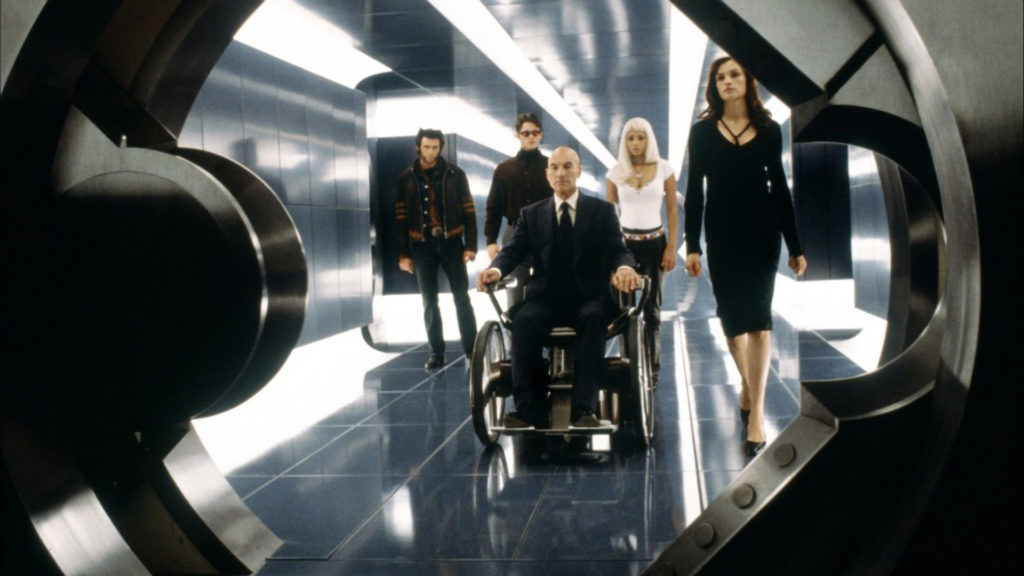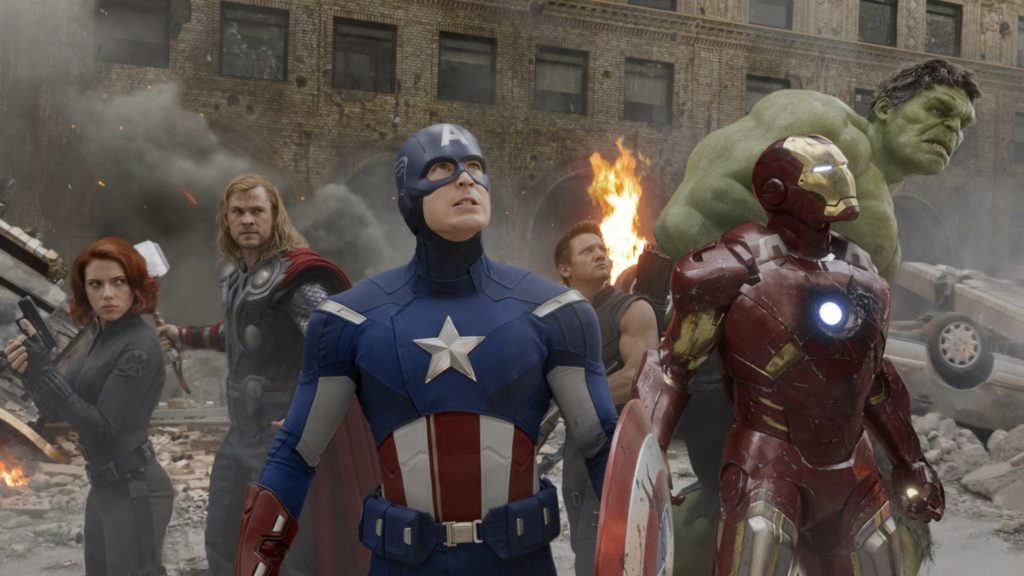by Aaron Earls
Superhero movies are leaping over the box office competition in a single bound these days.
One reason superhero movies have found a wide audience is because people are naturally intrigued by the battle between good and evil. In this superhero-obsessed culture, the church has an opportunity to point to the grand story of One who came to rescue us and defeat the enemy—but not without a little bit of drama.
As Uncle Ben told Peter Parker, Spider-Man’s alter ego, “With great power comes great responsibility.”
Modern-day heroes
Hero movies, be they super or not, have been a Hollywood staple. “Stories about heroes have always worked,” explains X-Men producer Ralph Winter, “and we are in need of heroes today as much as ever.”
But 15 years ago, as X-Men was about to be released, no one had any idea Hollywood was on the precipice of a comic book movie explosion, says Winter. Before X-Men, the Superman films had come and gone and the latest Batman film had flopped. Moviegoers (and moviemakers) seemed turned off to comic adaptations.
“We were taking a giant risk with a $75 million movie based on a comic book,” says Winter. “Nearly everything else had failed.”
Winter says X-Men director Bryan Singer wanted to place the movie in the real world, our world. “They might be walking down the street in your metropolis,” Winter says. “That gave it urgency and credibility.”
The risk paid off, and X-Men was a hit. Other comic book movies followed suit. Spider-Man swung to the top of the box office. Batman was rebooted. And before you could say “kryptonite,” the movie theater looked more like a comic book store.
Great power
Along with the newfound ability to relate to viewers, X-Men taught comic book movies that followed how to go beyond the surface.

“The X-Men movies I worked on were always about great questions of life that continue to be asked no matter your age,” Winter explains. “Why are we here? What is my role? Do I fit in? Should I fit in?”
Sometimes superhero movies answer those questions in a way Christians can affirm, but regardless they ignite worthwhile explorations of what it means, ironically enough, to be human.
As we struggle with how to respond to ISIS beheading Christians in the Middle East, Batman struggles to understand where justice ends and revenge begins.
As we see our morality become increasingly counter cultural, the X-Men wrestle with being different in a world that values uniformity.
Sometimes we find it hard to understand what it means to love as Jesus loves, but we can see Superman touch on the ideas of self-sacrifice.
We often ask how our careers and abilities play into our Christian walk. And there is Spider-Man learning to use his gifts for the benefit of others.
But even beyond that, clear symbolism exists between the comic stories and the biblical story. Bible readers often see much in common when they pick up a comic.
“Superhuman powers, flawed heroes that overcome with supernatural assistance, dystopian societies, good versus evil—do any of these themes sound familiar to us regular readers of Scripture?” asks Art Ayris, publisher at Kingstone Comics.
The messianic overtones of Superman have been well known and even played up in the recent film adaptations.
Take this quote from Superman Returns: “Even though you’ve been raised as a human being, you are not one of them. … I have sent them you, my only son.” Superman came to Earth to help us fight a battle we could not win on our own.
No, Clark Kent’s alter ego is not Jesus, but there is a cultural bridge there we can use to address our fight with sin that remains hopeless apart from Christ.
Superhero films move an audience that may be uncomfortable speaking in terms of moral absolutes into a fictional world where there are good guys and bad guys.
“Even in our relativistic age, there is such a thing as right and wrong,” says Paul Asay, associate editor of PluggedIn. “We see things worth fighting for. We see forces we must fight against.”
During times of conflict, superheroes emerge and captivate a culture confronting an enemy. The golden age of comics, which gave us Superman, Batman, Wonder Woman, Captain America and more, took place during World War II.
Surrounding the Vietnam War, the silver age brought us Flash, Hulk, the Fantastic Four, Spider-Man, and X-Men. Now in the midst of a global conflict with terrorism, superheroes have taken over the big screen.
“When soldiers are dying to defend freedoms, we search to find a higher purpose emerging from their sacrifices,” says Kevin Harvey, author of The Bible in Pop Culture: Finding Our Creator in Superheroes, Prince Charming, and Other Modern Marvels.
“Many find comfort in God and the Bible, His message to us. Others perhaps resist this dependence on God, but still seek supernatural comfort in heroes created during times of crisis.”
Great responsibility
It is this desire for supernatural comfort and the conquering of evil that can become either a tool for or a rival of the pastor seeking to communicate God’s truth to the person in the pew who recently watched The Avengers: Age of Ultron.

In Athens, Paul references the statues of the false gods and pagan poetry as a means to communicate the gospel. Drawing from Paul, theologians throughout the centuries have declared, “all truth is God’s truth.” If it is true, it comes from God, whether we find it in a theology book or a comic book.
Pastors can use these movies as illustrations to effectively communicate biblical truth. “If you want to be a hero and connect to the geeks in your congregation (trust me, they are there), throw in a comic book or movie illustration once in a blue moon,” says Ayris.
“These books and movies are a dominant part of the cultural conversation, so it doesn’t make evangelistic sense to ignore it as a connectivity point.”
For Asay, God can work through these movies “to plant hints of His love, grace, and truth.” It wouldn’t even be the most surprising methodology God has used to deliver a message.
“If He can speak through a donkey or a burning bush,” he asks, “why not through movies—the most powerful storytelling medium we have?”
Of course, Christians should seek to be the best participants and influencers of culture as possible—carefully, discerningly, and lovingly participating in and challenging that culture.
We should recognize when comic book movies need correction. When they become opposition to the gospel, the church must function as the corrective.
In The Avengers, Black Widow warns Captain America not to go after Loki and Thor, the battling gods from Asgard.
Before ignoring her warning and jumping out of the plane, the patriotic superhero responds, “There’s only one God ma’am, and I’m pretty sure He doesn’t dress like that.”
With that, Captain America drew a line in the sand that many haven’t drawn themselves. These “gods” and their movies can come across as competition in the hearts and minds of moviegoers.
Alan Noble, managing editor and co-founder of Christ and Pop Culture, says there is value in pastors knowing these stories and being “better judges of our anthropology.”
But he warns about the contribution these films make to a culture already swimming in distractions and frequently blinded by entertainment.
“I fear superhero movies often contribute to the ‘electronic buzz’ of the 21st century,” Noble says. “Part of the job of the church, then, is to help disrupt that buzz, to startle people to their own existence in God’s world.”
A reality in this world is that we are not in control of it. “We like to feel in control of our lives, but we’re at the mercy of quite a bit these days,” says Asay.
“But superheroes, some of them control stuff we never could: X-Men’s Storm can control the weather, Professor Xavier can influence how people think, and Superman can taunt the very laws of physics.”
Dig Deeper |
 |
| • The Stories We Tell by Mike Cosper • All You Want to Know About the Bible in Pop Culture by Kevin Harvey • God on the Streets of Gotham by Paul Asay |
We must highlight the fact that we will never possess those levels of control, Noble says. Christianity must give people something different.
“We need to be reminded of our deep, paralyzing fear that the world we live in is out of our control and that there are no superheroes to swoop down and right injustices and stop tornados and prevent rapes,” he says.
“What’s more, evil does not merely exist outside us, but is found in our own hearts. And God’s grace does not merely restrain evil. Christ’s work on the cross begins a work of deep reconciliation, justifying our existence and reorienting our world.”
In other words, we need the truth to set us free.
Superhero movies can be used to present truth, but they, like us, need to be redeemed. Using these stories, we can understand our neighbors and community, while recognizing how best to be salt and light in a superhero-obsessed culture.
God has given us the ability to take part in these immensely popular stories. With that great power, we have a great responsibility to proclaim and live out the message of One who sacrificed Himself to save us and who will make everything right by the end.
And that superhero story is much more powerful than a locomotive and able to change lives faster than a speeding bullet.
Related posts:
AARON EARLS (@WardrobeDoor) is online editor of Facts & Trends.








